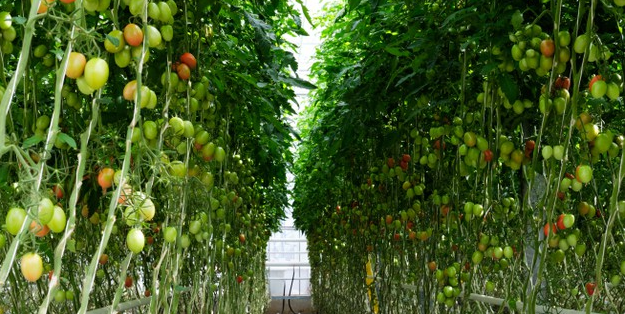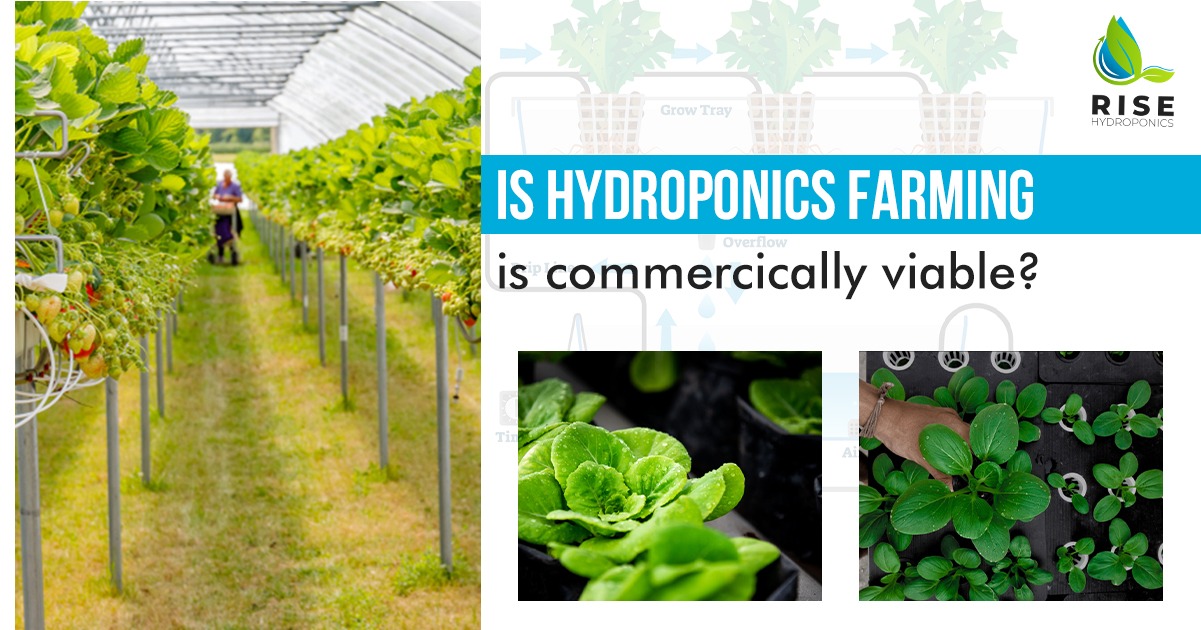Are you a home gardener or a commercial gardener who has probably encountered the thought of commercializing your hydroponics system? Well why not? After all, if you opt for a Commercial hydroponics system there is far less space you have to hunt for. Also,, the best thing about this system is that the plants have a higher rate of growth under the same conditions. However, there are many that are still losing their minds over whether this farming method is profitable. Let us tell you that dozens of indoor and greenhouse farm operations have proven to be commercially viable. So, if you want to experience a boom in terms of your harvest, here is how you totally can.

Start really small
You know when experimentation works best? When you experiment on a very small scale! This is why we recommend all beginners to start with a tiny pilot project. It is always a great ideal to practice before you make it big, commercially. Wondering how to do that? Well remember, it is celebrating the small wins before you head out to go all commercial.

Save and earn with Hydroponics Farming
You know you are saving big time with hydroponics farming because this method does not require too many resources. For instance, you save tons on water and space. Compared to organic farming where you have to use other mediums to transport nutrients to the soil, in a Commercial hydroponics system, you are directly feeding the plant, hence better yield is a reality.

Gear yourself up for spending time

Treat your hydroponics farm as the sole priority of your life. If commercial expansion is on your mind, then make sure you are ready to invest the time and dedication that it demands. Do not treat it as your side business. The minute you become a bad mommy to your farm, you contribute to making Commercial hydroponics system a non-profitable venture.Therefore, what should you do? Look below.
Step 1
If you are spending 4 hours on a daily basis, there is no bigger minimum time than this. Spend time checking if the plants are receiving enough water and nutrients.
Step 2
You will spend your time looking out for manifestations by pets.
Diverse range of produce

The sheer percentage of veggies and fruits that you can grow in a Commercial hydroponics system is far higher than what you can grow in traditional farming. You can use the same farm space to cultivate crops like tomatoes, mint, cilantro, and basil. This factor will hugely improve the profit margins.
Pro tip: Understand the kind of crops lacking in your region and match its demand by growing the right crops. If your area has lesser tomatoes growing but there’s a great demand for it, then go for it.
Fun fact: Grow columns of tomatoes including cherry and the traditional one. All they need is a growing medium for support, more sunlight, and a pH level of 5.5-6.5. A wick system works amazingly well for production of tomatoes.
Choose the best pricing strategy
Always price your products in a manner so that it matches the product’s quality. Refrain from gaining a status quo. Your pricing must match the product’s quality. With the correct distribution strategy and right system, the local product you produce has to be better than what anyone else is selling.
Put in quality farm labor

Hydroponics is easily the most demanding system. At no point in life when you are into it, can you go easy with it. The farming method will not tolerate any form of skipped chore. Do not opt for a team that does not have the knowledge to succeed. This is where quality labor comes into play. If you are a part of indoor/vertical farming industry, educate your team so much so that they become business managers rather than farm laborers.
The Inference
Yes, the Commercial hydroponics system is viable and feasible if you take it as a commercial operation. Just focus on doing one thing well and perfect. You can either develop technology or grow food-not both. The minute you attempt to do both, the results can be poor. Lastly, decrease your reliance on product suppliers and consultants. They may guide you well, but sooner or later you will manage your farm. Thus, be prepared to work hard assimilating as much knowledge you can and put in that dedication.

